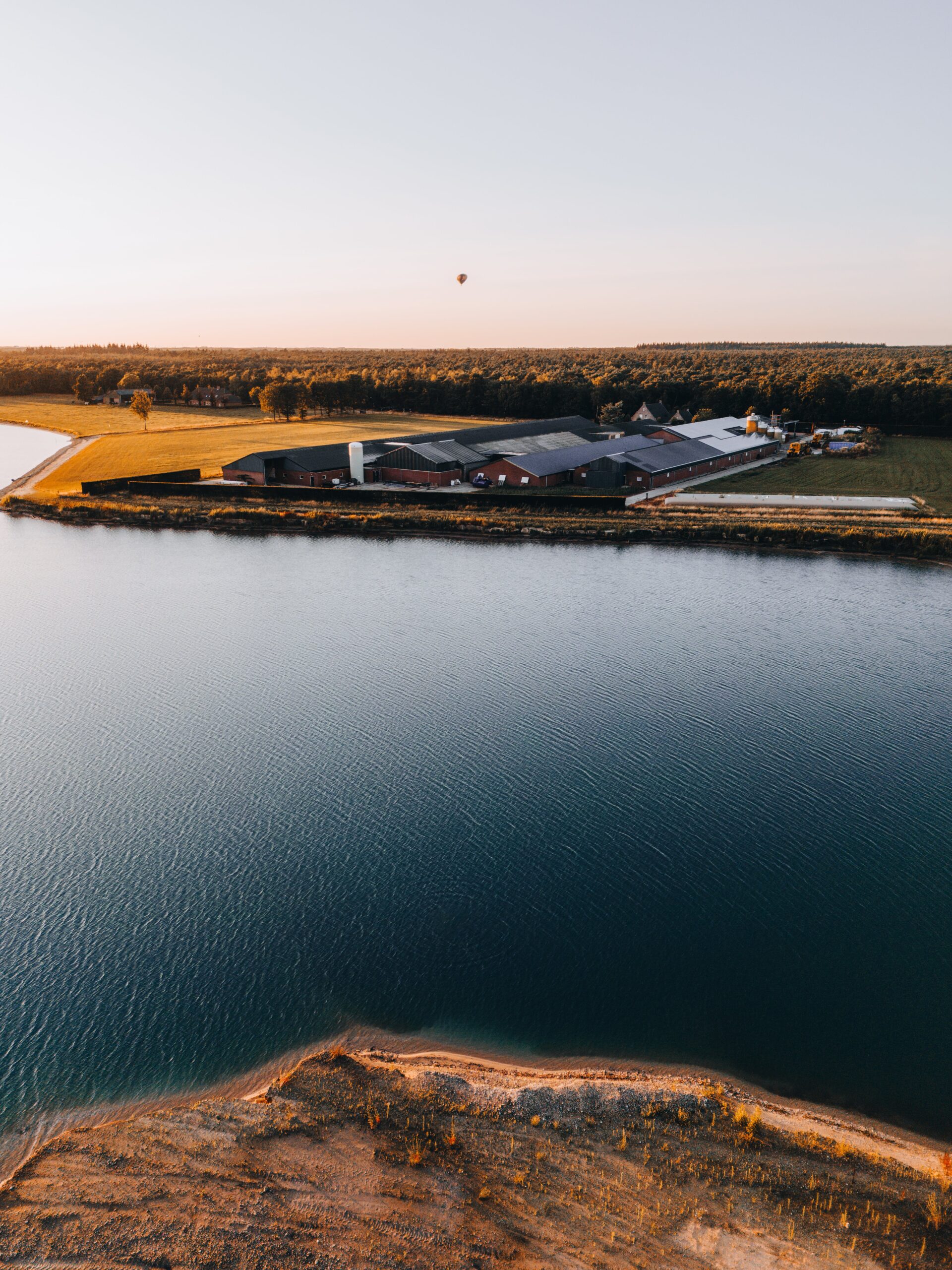Looking to level up your online presence in the gaming industry? Look no further! In this article, we will explore winning SEO strategies specifically tailored for the gaming industry. From optimizing your website for peak performance to staying ahead of the competition, these expert insights and trends will help unlock online success. So, grab your controller and let’s dive into the world of SEO in the gaming industry!

Keyword Research
Identifying relevant keywords
One of the first steps in optimizing your gaming website for search engines is to identify relevant keywords. These are the words and phrases that users are most likely to use when searching for gaming-related content. Think about the topics and themes that are most popular in the gaming industry and brainstorm a list of potential keywords. You can also use tools like Google Keyword Planner, SEMrush, or Moz’s Keyword Explorer to help you generate keyword ideas.
Using keyword research tools
Once you have a list of potential keywords, it’s important to use keyword research tools to determine their search volume, competition level, and potential traffic. These tools provide valuable insights into the popularity and competitiveness of different keywords, helping you prioritize your efforts. Look for keywords that have a high search volume but low competition to maximize your chances of ranking well in search engine results.
Competitor keyword analysis
Another effective strategy is to analyze the keywords that your competitors are targeting. By studying their websites and content, you can gain insights into the keywords they are using to attract their audience. This can help you identify new keywords that you may have overlooked or find opportunities to outperform your competitors. Tools like SEMrush and Ahrefs offer competitor analysis features that can help you gather this information easily.
On-Page Optimization
Title tags and meta descriptions
Title tags and meta descriptions are important elements of on-page optimization. They provide a concise and accurate description of the content on your web pages and can influence how your website appears in search engine results. Make sure to include relevant keywords in your title tags and meta descriptions to improve your chances of ranking for those keywords. However, remember to write engaging and compelling titles and descriptions that entice users to click on your website.
URL structure optimization
Optimizing your URL structure is crucial for search engine optimization. Use descriptive and keyword-rich URLs that accurately reflect the content on your web pages. Avoid using vague or random strings of numbers and characters in your URLs as they can be confusing to both users and search engines. Instead, use short and concise URLs that include your target keywords to help search engines understand the relevance and context of your web pages.
Header tags and keyword placement
Header tags, such as H1, H2, and H3, play an important role in organizing and structuring your content. They not only improve the readability and user experience of your website but also provide search engines with valuable information about the content on your page. Be sure to include relevant keywords in your header tags but avoid keyword stuffing. Use keywords naturally and strategically to guide both users and search engines through your content.
Optimizing images and multimedia
Images and multimedia elements can enhance the visual appeal and engagement of your gaming website. However, they can also impact your website’s performance if not optimized properly. Use descriptive file names and alt tags for your images, as search engines rely on these to understand the content of the images. Compress your images to reduce file size without compromising their quality, as faster-loading websites tend to rank better in search engine results.
Internal linking and anchor text optimization
Internal linking refers to linking to other pages within your own website. It helps search engines discover and understand the relationship between different pages and improves the overall user experience by providing additional relevant content. When creating internal links, use descriptive anchor text that includes relevant keywords. This not only helps search engines understand the context of the linked page but also improves the user experience by providing clear and informative navigation within your website.

Content Creation and Optimization
Creating high-quality and engaging content
Creating high-quality and engaging content is essential for driving organic traffic to your gaming website. Your content should be informative, entertaining, and valuable to your target audience. It should provide unique insights, tips, or entertainment that cannot be easily found elsewhere. By creating content that stands out, you can attract more visitors, keep them on your website for longer, and increase the chances of them sharing your content with others.
Using relevant keywords in content
As you create your content, be sure to incorporate relevant keywords naturally throughout the text. These keywords should be seamlessly integrated into your content, adding value without appearing forced or spammy. Do not overstuff your content with keywords, as this can negatively impact the user experience and harm your search engine rankings. Instead, focus on creating informative and engaging content that aligns with the keywords you want to target.
Optimizing content for readability and user experience
In addition to using keywords effectively, it’s important to optimize your content for readability and user experience. Break up your content into shorter paragraphs, use headings and subheadings to organize your information, and include bullet points or numbered lists to make your content easy to skim. Use a clear and concise writing style that is free of jargon or complicated language. Make sure your content loads quickly and is accessible on different devices to provide a seamless user experience.
Utilizing multimedia in content
Incorporating multimedia elements, such as videos, images, and infographics, into your content can enhance its appeal and engagement. People are visual beings, and incorporating dynamic media can make your content more memorable and shareable. Create informative and visually appealing videos that provide tutorials, gameplay highlights, or reviews. Use relevant images and infographics to supplement your written content, making it more visually appealing and easy to understand.
Updating and repurposing old content
Don’t let your old content go to waste. Instead, regularly update and repurpose it to keep it relevant and valuable to your audience. Update outdated information, refresh statistics, and add new insights or examples to improve the overall quality of your content. Repurpose your content into different formats, such as ebooks, podcasts, or interactive quizzes, to reach a wider audience and extend the lifespan of your content. This also helps search engines recognize that your website is regularly updated with fresh and valuable content.
Technical SEO
Optimizing website loading speed
Website loading speed is a critical factor that affects both user experience and search engine rankings. Slow-loading websites can lead to higher bounce rates and lower conversions. To optimize your website loading speed, minimize the file size of your images and multimedia, compress your CSS and JavaScript files, and enable browser caching. Regularly monitor your website’s speed using tools like Google PageSpeed Insights or GTmetrix and make necessary adjustments to improve your website’s performance.
Mobile optimization and responsive design
With the increasing use of mobile devices to access the internet, it’s crucial to optimize your gaming website for mobile users. Make sure your website has a responsive design that adjusts seamlessly to different screen sizes and resolutions. Test your website on various mobile devices to ensure that the layout, buttons, and images are properly displayed. Consider implementing Accelerated Mobile Pages (AMP) to improve mobile loading speed and enhance the mobile user experience.
XML sitemaps and robots.txt
XML sitemaps and robots.txt files are essential for search engines to crawl and index your website effectively. XML sitemaps provide search engines with a roadmap of your website’s structure, helping them discover and understand your web pages. Create a comprehensive XML sitemap that includes all relevant pages on your website and submit it to search engines like Google and Bing. The robots.txt file allows you to control which pages of your website should be crawled by search engine bots. Use the robots.txt file to block access to irrelevant or duplicate content.
Dealing with duplicate content
Duplicate content can negatively impact your search engine rankings. It occurs when similar or identical content appears on multiple web pages within your website or across different websites. To avoid duplicate content issues, make sure each page on your website has unique and valuable content. Use canonical tags to indicate the preferred version of a page to search engines. Regularly monitor your website using tools like Google Search Console to identify and address any duplicate content issues promptly.
Fixing broken links and 404 errors
Broken links and 404 errors can negatively impact both user experience and search engine rankings. They occur when a page or resource that a link points to no longer exists or has been moved. Regularly audit your website for broken links using tools like Screaming Frog or Broken Link Checker and fix them by updating the links or redirecting them to relevant pages. Custom 404 pages should be created to provide a user-friendly experience and suggest alternative navigation options to visitors.

User Experience and Engagement
Creating intuitive and user-friendly website navigation
User experience is crucial for retaining visitors and encouraging them to explore more of your gaming website. Create a clear and intuitive website navigation structure that helps users find the desired information quickly and easily. Use descriptive labels for your menu items, organize your content into logical categories, and include a search bar to facilitate navigation. Regularly test your website’s navigation to identify and address any usability issues that may arise.
Optimizing website for different devices and screen sizes
In addition to mobile optimization, it’s important to ensure that your gaming website is optimized for different devices and screen sizes. Test your website on various devices, including desktops, laptops, tablets, and smartphones, to ensure that the layout and functionality are consistent and user-friendly across different platforms. Pay attention to elements like font sizes, button sizes, and image alignments to provide a seamless experience for users on different devices.
Implementing social sharing buttons
Social sharing buttons allow users to easily share your content with their networks, increasing your website’s reach and visibility. Place social sharing buttons prominently on your web pages, making it convenient for users to share your content. Incorporate popular social media platforms like Facebook, Twitter, and Reddit, as well as gaming-specific hubs like Twitch or Discord. Ensure that the sharing buttons are mobile-friendly and blend well with the overall design of your website.
Encouraging user-generated content and reviews
User-generated content (UGC) and reviews can contribute to the credibility and engagement of your gaming website. Encourage your audience to share their gaming experiences, tips, and opinions on your platform. Enable comments, ratings, or reviews on your articles, videos, or game listings to foster a sense of community and encourage interaction. Reward or feature users who provide valuable and insightful content to motivate others to contribute. User-generated content can also provide new keyword opportunities and attract more organic traffic to your website.
Building Backlinks
Guest posting and blogger outreach
Building backlinks from reputable websites in the gaming industry can significantly improve your search engine rankings. Consider guest posting on relevant gaming blogs or reaching out to influencers and bloggers in the gaming community to request backlinks or collaborations. Create valuable and informative guest posts that showcase your expertise and include links back to your own website. Building relationships with influential individuals in the gaming industry can lead to more backlink opportunities in the future.
Creating shareable and link-worthy content
Creating shareable and link-worthy content is one of the most effective ways to earn backlinks naturally. Develop interesting and unique content that appeals to your target audience and provides value. This can include in-depth guides, comprehensive reviews, or thought-provoking opinion pieces. Incorporate visual elements, such as images, infographics, or videos, to increase the shareability and linkability of your content. Promote your content through social media and gaming communities to encourage more backlinks and engagement.
Participating in gaming communities and forums
Engaging with gaming communities and forums is not only a great way to connect with fellow gamers but also an opportunity to build backlinks. Participate in relevant discussions and provide helpful insights and advice. Include a link to your website in your forum signature or profile to drive traffic back to your own platform. However, avoid spamming or self-promotion, as this can harm your reputation and lead to penalties from search engines.
Monitoring and disavowing toxic backlinks
While building backlinks is beneficial, it’s important to monitor your backlink profile regularly to identify and disavow toxic or low-quality backlinks. Toxic backlinks are links from spammy or irrelevant websites that can harm your website’s reputation and search engine rankings. Use tools like Google Search Console or SEMrush’s Backlink Audit to identify potentially harmful backlinks. Once identified, disavow those backlinks using Google’s Disavow Tool to signal to search engines that you do not endorse or want to be associated with those links.
Local SEO for Gaming Businesses
Creating local business listings and optimizing Google My Business
If you own a gaming business with a physical location, it’s important to optimize your website for local search. Create local business listings on platforms like Google My Business, Bing Places, and Yelp. Provide accurate and up-to-date information, including your business name, address, phone number, and website. Encourage customers to leave reviews and ratings, as positive online reviews can improve your local search visibility and attract more customers.
Optimizing websites for local keywords
Incorporating local keywords throughout your website is crucial for local search engine optimization. Research and target keywords that include location-specific phrases, such as “gaming arcade in [city]” or “video game store near me.” Include these keywords in your page titles, meta descriptions, headers, and content to indicate to search engines that your business is relevant to local searches. Additionally, ensure that your website mentions your business’s location and contact information prominently.
Getting positive online reviews and ratings
Positive online reviews and ratings can have a significant impact on the success of your gaming business. Encourage your customers to leave reviews and ratings on platforms like Google, Yelp, or Facebook. Offer incentives or rewards for those who leave honest and positive feedback. Reply to reviews promptly, addressing any concerns or issues raised by customers. Showcase positive reviews on your website or social media to build trust and credibility with potential customers.
Measuring Performance and Analytics
Setting up Google Analytics and tracking website metrics
To measure the performance of your gaming website, it’s crucial to set up Google Analytics or similar web analytics tools. Google Analytics provides valuable insights into your website’s traffic, user behavior, and conversions. Track metrics such as page views, bounce rate, average session duration, and conversion rates to understand how users engage with your website. Use this data to identify areas for improvement and make data-driven decisions to optimize your website for better performance.
Using SEO tools for performance analysis
In addition to Google Analytics, use SEO tools like SEMrush, Moz, or Ahrefs for performance analysis and competitor research. These tools provide valuable data about your website’s organic traffic, keyword rankings, backlinks, and more. Use this information to identify strengths, weaknesses, or new opportunities for optimization. Analyze your competitors’ strategies to understand their tactics and gain insights that can help you improve your own SEO efforts.
Monitoring keyword rankings and organic traffic
Regularly monitor your keyword rankings and organic traffic to gauge the success of your SEO efforts. Track the rankings of your target keywords using tools like SEMrush or Moz to ensure that your website is consistently appearing in search engine results. Analyze trends and identify any fluctuations in organic traffic to pinpoint areas that may require optimization or content improvement. Set goals for improving keyword rankings and organic traffic and measure your progress over time.
Analyzing user behavior and conversions
Understanding user behavior and conversions is crucial for optimizing your gaming website’s performance. Use analytics tools to track user behavior metrics such as click-through rates, time on page, and conversion rates to understand how users interact with your website. Analyze data to identify patterns or areas where users may be experiencing frustration or confusion. Optimize your website’s design, content, or user interface to improve user flow and increase conversions.
Social Media Optimization
Creating social media profiles for gaming businesses
Social media platforms offer a powerful way to connect with your target audience and promote your gaming business. Create profiles on popular platforms like Facebook, Twitter, Instagram, and YouTube. Customize your profiles with appealing visuals, accurate business information, and links back to your website. Regularly update your social media profiles with engaging content that aligns with your audience’s interests and gaming trends.
Optimizing social media posts with relevant keywords and hashtags
Optimize your social media posts by incorporating relevant keywords and hashtags into your captions, descriptions, and tags. This helps search engines and social media algorithms understand the content and context of your posts, increasing the chances of them appearing in relevant searches and reaching a wider audience. Research popular gaming-related keywords and hashtags to ensure your content is visible to users interested in gaming.
Engaging with the gaming community on social media
Social media is not just a platform for self-promotion, but also an opportunity to engage with the gaming community and build relationships. Respond to comments, messages, and mentions promptly, showing genuine interest in your audience’s thoughts and questions. Join relevant gaming groups or communities to participate in discussions and share your expertise. Encourage and foster interaction by running contests, quizzes, or polls that encourage user engagement.
Running targeted social media advertising campaigns
Social media advertising can help you reach a wider audience and drive traffic to your gaming website. Develop targeted advertising campaigns that focus on specific demographics, interests, or geographical locations. Use tools like Facebook Ads or Twitter Ads to create engaging ad creatives that align with your target audience’s preferences. Monitor the performance of your ads, regularly tweak your targeting, and analyze the results to optimize your campaigns for maximum effectiveness.
Staying Updated with SEO Trends
Following gaming industry news and updates
The gaming industry is constantly evolving, and staying up-to-date with the latest trends and news is crucial for effective SEO. Regularly follow reputable gaming news websites, blogs, and industry publications to stay informed about new games, updates, or emerging trends. This knowledge can help you create timely and relevant content that attracts your target audience and positions your gaming website as a reliable source of information.
Monitoring search engine algorithm changes
Search engines regularly update their algorithms to provide more accurate and relevant search results. It’s important to stay informed about these algorithm changes to ensure your SEO strategies remain effective. Follow search engine news and updates, participate in SEO forums or groups, and read industry-leading blogs to stay ahead of algorithm changes. Implement necessary adjustments to your SEO strategies to align with the latest guidelines and best practices.
Attending SEO conferences and webinars
Attending SEO conferences and webinars is a great way to gain insights from industry experts and learn about the latest SEO trends and strategies. Conferences and webinars provide opportunities to network with other professionals in the gaming and SEO industries, exchange ideas, and stay updated on industry developments. Take advantage of these events to expand your knowledge, gain inspiration, and refine your SEO techniques.
Continual learning and experimentation
SEO is a dynamic field, and continual learning and experimentation are essential to stay ahead of the competition. Dedicate time to reading industry-leading SEO books, taking online courses, or enrolling in certification programs to further develop your SEO skills and knowledge. Experiment with different strategies and techniques on your gaming website to discover what works best for your audience. Analyze the results and adapt your SEO strategies accordingly to drive continual improvement.




